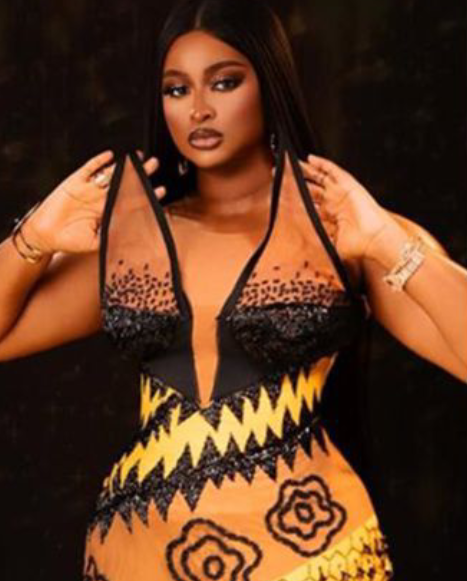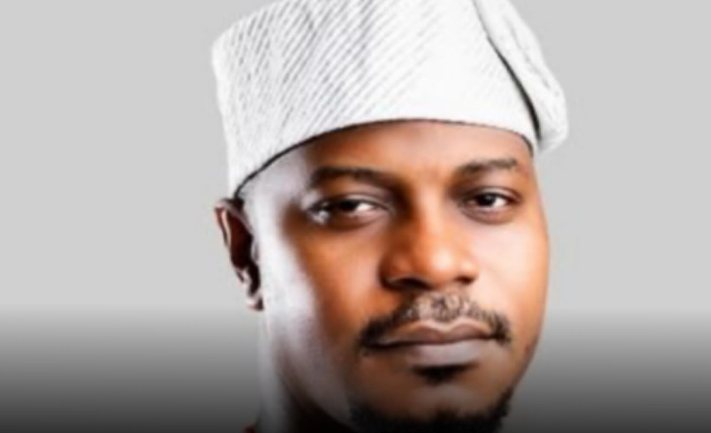

Nigerian actress Etinosa Idemudia has once again set social media ablaze, igniting a wave of intense debate after declaring that women cannot be Christians and feminists at the same time. The statement, delivered with her usual unfiltered boldness, has drawn sharp reactions from critics and supporters alike, making it one of the most talked-about controversies in recent days. Etinosa, known for her outspoken nature and willingness to challenge societal norms, has never shied away from controversial issues, but this latest assertion has thrust her into the center of a nationwide conversation that cuts across religion, gender, identity, and personal conviction.
Her comment, which read, “You can't be a Christian and a feminist at the same time, you have to choose one,” quickly circulated across platforms, sparking outrage among feminist advocates, religious commentators, and everyday Nigerians who felt the need to weigh in. For many, the declaration felt like an unexpected blow—an attempt to force women into a narrow identity box at a time when society is increasingly embracing the idea that individuals can embody multiple, sometimes contrasting, belief systems. Yet for others, her statement was nothing more than a reflection of traditional Christian teachings that place emphasis on submission, hierarchy, and predefined gender roles. The clash of ideologies has created a storm of opinion, with Etinosa’s name firmly at the center.
As soon as her remark hit the internet, the reactions were swift and intense. Many social media users expressed shock that a woman in the entertainment industry—a sector known for progressive thinking—would take such a firm stance against feminism. Some accused her of misunderstanding the core principles of feminism, which focus on equality, bodily autonomy, and the dismantling of harmful gender norms. They argued that feminism is not a war against religion, nor is it a rebellion against spiritual doctrine, but a global movement advocating for fairness and freedom. According to these critics, being Christian and feminist are not mutually exclusive; instead, they contend that feminism challenges cultural oppression, not faith.
On the other hand, a significant group supported Etinosa, praising her for “speaking the truth” and standing on what they described as biblical values. These supporters insisted that modern feminist ideologies often conflict with the teachings of submission, obedience, and marital structure outlined in various Christian scriptures. For this group, Etinosa’s comment was not an attack on women but a call for clarity—an invitation for Christian women to reflect on whether today’s feminist ideologies align with their spiritual beliefs. As the debate spread, religious leaders, self-proclaimed feminists, and everyday believers joined the fray, each offering a different interpretation of the delicate intersection between faith and gender activism.
Amid the uproar, feminist groups in Nigeria and beyond expressed disappointment, calling Etinosa’s statement regressive and harmful. Some questioned why women are constantly pressured to “choose” between empowerment and spirituality, when men are rarely asked to make such sacrifices. They argued that Christianity, like many religions, has evolved over the centuries, and that many churches around the world now embrace gender equality and women’s leadership. Counting examples of female pastors, bishops, and global Christian scholars who identify as feminists, they noted that Etinosa’s generalization overlooks the diversity within Christianity itself. For these advocates, Etinosa’s comment reinforces stereotypes that keep women limited—and they are determined not to let such narratives go unchallenged.
But beyond the emotional responses, Etinosa’s statement has revived broader conversations about what it means to be a Christian woman in Nigeria today. Many young women found themselves torn between two identities they hold dearly: their faith and their desire for equality. For them, Etinosa’s words felt like a demand for allegiance, a forcing of one identity to eclipse the other. Some expressed sadness that public figures continue to create divisions instead of fostering understanding. Others admitted that the tension between religious doctrine and feminist beliefs is something they have internally struggled with for years, and Etinosa’s declaration only dragged those private battles into the public square.
While the actress has not issued further clarification, many believe her comment was rooted in a conservative interpretation of Christianity—an interpretation that sees feminist activism as a direct challenge to divinely assigned roles. Those who share her viewpoint insist that feminism promotes rebellion, encourages women to reject spiritual authority, and prioritizes independence over biblical submission. Opponents counter that feminism simply encourages women to challenge harmful traditions, abusive practices, and societal inequalities that have been justified under the guise of religion for centuries. For them, the real issue is not faith, but the way faith has been weaponized to keep women silent.
The controversy has also reignited questions about the responsibilities of public figures in shaping social discourse. Etinosa’s statement, though made in her personal capacity, resonates widely because of her platform. Many Nigerians argued that influential personalities should be more cautious when discussing sensitive topics that affect millions. However, her supporters countered that she has every right to her opinion and should not be bullied into silence. Her unapologetic tone, they say, reflects the very essence of free speech—a value strongly protected on social media.
As the debate continues, one thing is clear: Etinosa has touched a nerve at a time when Nigeria is grappling with evolving cultural values. The country is caught between deep-rooted religious traditions and an increasingly vocal youth movement advocating for fairness and societal reform. Her statement has become a mirror reflecting that ideological tug-of-war, exposing the tension between progress and preservation, between modern identity and traditional belief.
Whether one agrees with her or not, Etinosa’s bold declaration has sparked necessary conversations that go far beyond her own personal beliefs. It has forced Nigerians—especially women—to reflect on who they are, what they stand for, and how the intersection of faith and feminism shapes their daily lives. It has challenged churches, activists, and individuals to examine the nuances of gender, power, and interpretation. And most importantly, it has highlighted the ongoing struggle to reconcile evolving social ideals with centuries-old religious doctrines.
In the end, this clash of views may not produce a definitive answer to the question of whether one can be both Christian and feminist. But what is certain is that Etinosa Idemudia, intentionally or not, has sparked a conversation that will not die down anytime soon. Her statement has become a catalyst for reflection, identity formation, and societal debate. And in a country where public opinion is powerful and deeply emotional, her bold claim will continue to echo—challenging women to define themselves on their own terms, whether within the bounds of religion, feminism, or somewhere in between.


